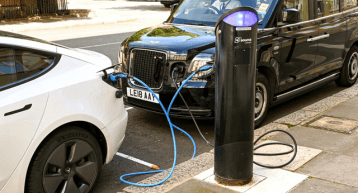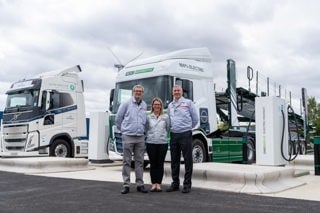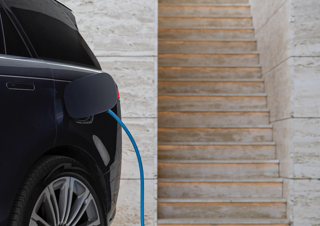Salary sacrifice provider Fleet Evolution is urging the Government to stick with the 2035 phase-out date for the sale of new petrol and diesel vehicles.
Andrew Leech, the company's founder and managing director, said: “It seems counterintuitive that, as specialists in the supply of EVs via salary sacrifice, we should be urging extending the deadline to ban the sale of new ICE vehicles to 2035.
“But the truth is that 40% of the potential EV-driving population do not have adequate access to home charging, and have to use the less convenient, more expensive public charging infrastructure.
“The shameful lack of action from local authorities on implementing street charging means that the only option for this portion of the population is to use the fast charge network which may not always be convenient to their home.”
He pointed out that a 200-mile journey could cost as much as £50, using a public charger, while a driver with a home charger could pay jut £5.
Last September, the Conservative government announced an extension of the ban on the sale of new ICE vehicles from 2030 to 2035. But, since coming to power, the new Labour government has said that it intends to restore the 2030 phase-out date for the sale of new petrol and diesel cars to “provide certainty” to manufacturers.
In doing so, however, it has introduced ambiguity around the sale of new vans, with the DfT only referring to cars in its plans. That has made it unclear whether the deadline will also be brought forward by five years for fossil-fuelled vans.
And there is further uncertainty over the sale of both mild and plug-in hybrid cars (PHEVs), with the original legislation stating they would be allowed until 2035.
“Some insiders have suggested this rather muddy picture will be clarified at the Budget later this autumn, which will only lead to further uncertainty and delayed sales activity for several more months,” said Leech.
He argued that it made more sense for the government to retain the 2035 deadlines for all vehicles, as it not only gave manufacturers more time to improve and refine their model line-ups, but it provided five years more breathing space for infrastructure suppliers to extend and upgrade the charging network.
“The priority now must be in investing in better resources for the 40% of the nation who risk being left behind in this new electric revolution.
“Where we need to see a coherent strategy from the new government is in large conurbations where people park in the street, sometimes outside their own house, but not always, and where lack of charging is holding them back from going electric,” Leech said.






















Login to comment
Comments
No comments have been made yet.